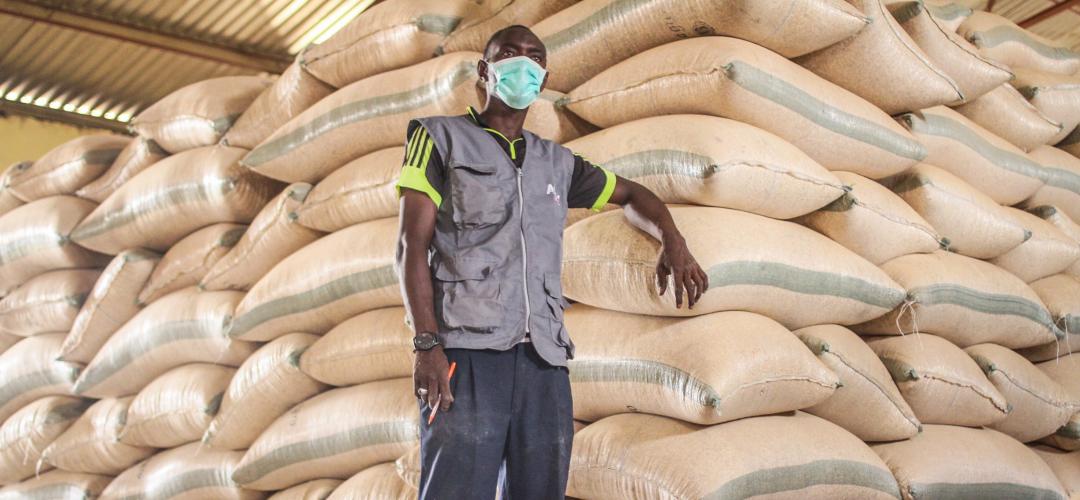Top Agritech Player Fears Nigeria’s Food Inflation Crisis Could Worsen

Africa’s leading commodities player, AFEX, unveiled its 2023 Crop Production report in a hybrid event hosted at its Abuja office on the 16th of November, 2023. The crop production report, which delivers insights on six key commodities (Maize, Paddy rice, Soybean, Sorghum, Cocoa, and Sesame) leverages farmer surveys and measurement of transaction-level data to track vital information across crop production, price performance, and market dynamics. The report aims to aid the understanding of the current food system while providing stakeholders in the commodities market with intel to make data-driven trading decisions in the coming season.
The report highlights a critical improvement in access to farmland for cultivation in crucial areas, we also witnessed an increase in the usage of improved inputs, such as high-yielding seeds and fertilizers, compared to last season, which contributed to Maize and Paddy rice being forecasted to have a significantly higher production this season. However, input lending remains a major challenge today, with agriculture making up only 6.16% of bank lending in 2022.
On pricing, the report forecasts an increase in prices for all commodities on the basis of a general decline in production coupled with increasing demand across processing and exports. Paddy Rice faced the most notable upswing in 2022/2023, partly due to increased flooding and the India rice ban that contributed to an increase of 34% and a baseline pricing of NGN353,000/mt, which is expected to rise to NGN400,000/mt and projected to stabilize at NGN480,000 to NGN500,000/mt by Q3 2023.

The report highlights food insecurity and food inflation as a major challenge for Nigeria, with a 5.7 million metric ton shortage across human consumption and agro-processing, and a historically high food inflation rate of 30.64%. Currently, Nigeria’s Global Hunger Index score remains alarmingly high, ranking 109th out of 125 countries, indicating a severe food security crisis. The report notes that as food prices continue to surge, as witnessed in the 2023 season, food security challenges will continue to persist, further reducing the continent’s capacity to achieve Zero hunger by 2030.
Speaking at the launch event, President/CEO of AFEX Nigeria, Akinyinka Akintunde, stated, “This year, we nearly doubled our sample size from 20,677 to 39,091 to get an accurate reflection of the current state of Agriculture production, and we found that we must take extra care to prioritize improvement in agricultural productivity for these farmers, and this is hinged on investing in the sector, and solving for infrastructure, logistics, and technology gaps. This transformation will substantially enhance food self-sufficiency and increase our ability to meet the nutritional and food security needs of a growing population while also bolstering the economy through foreign exchange earnings.”
A recurring limitation for agriculture on the continent is a shortage of reliable data, which affects the availability of transparent pricing and limits, on the one hand, participation from the side of capital market operators and largely financial market players and on the other hand, farmers’ ability to negotiate equitable contracts for themselves. This report attempts to build that gap by building a reliable data bank to promote market education and facilitate accurate trading decisions.